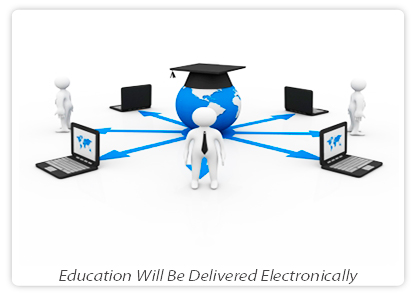When I was growing up, the ultimate fulfillment of the American Dream was to become a doctor or a lawyer.
Sometimes you still hear that today, but mostly not. Unfortunately, there’s an overabundance of lawyers. And, have you ever heard a doctor talk well of his profession in the last fifteen years?
Today, for doctors and lawyers, the American dream has become a rude awakening.
Why?
For one, if you graduate with a medical or legal degree, your debt is onerous. For medical students this is especially the case. Medical school debt can range from $160,000 to $200,000 and can reach as high as $300,000. Until recently, the cost of medical training rose at a rate higher than annual inflation. Absurd. For someone in general practice, they may spend the rest of their professional careers paying off their debt.
Next, for the most part, doctors no longer have the power to set their prices, and are being challenged on their control of testing. This, plus the debt issue, has dispirited the medical profession, resulting in acute cynicism.
For lawyers, the payback for all their training is sad. In Salt Lake City, the average salary for a practicing attorney rarely reaches 100k, and more likely will average somewhere around 80k. As a result, lawyers, many times, are forced to become hustlers as much as practitioners.
This has an impact far more damaging than might be realized. When lawyers and doctors become hustlers and cynics, local communities suffer.
They do their jobs, but their personal and professional challenges are troubling enough that their traditional service to local communities has been compromised. Put bluntly, doctors and lawyers spend as much time strategizing on how much money can be made per client and patient as is spent solving the problems that patients and clients bring to them.
The answer, however, is not to pay lawyers more. Neither is it to put the business of medicine back in the hands of the individual medical practitioner.
No, the deeper answer to strengthening local communities is to create a stronger citizen. In my view a new kind of citizen can become the doctor, the lawyer, as well as the businessman and economist of the future – all in one.
Local communities will become what local communities were centuries ago, but more self sufficient, affluent, and much, much smarter. The stress local communities are feeling right now is the deconstructing of the current way things are done, and the birth of the new way things will be done.
The local citizen can no longer afford to put their confidence solely in the hands of specialists. It’s too expensive.
To counter this, the citizen will become a Digital Citizen.
Digital Citizen
It’s still not clear to most people how profoundly digital information will alter how they live in the future.
The average member of a local community will be far different than anything we have seen in the past. On most matters that count – health, disputes, business – the average citizen will make decisions which will help to make communities healthier, more functional, and richer.
Few questions and problems will go unattended for lack of the best knowledge the world can provide.
Knowledge
For example medicine will be interactive and three dimensional. The patient will manage his health and control information heretofore kept by the physician. Most diagnoses will be carried out at home by means of digital diagnostic kits. Simple procedures will allow the citizen to immediately know tolerance levels for blood pressure, body temperature, infections, etc.
More profoundly, other kinds of kits like a genetic test kit will let you know what and when your child will be susceptible to chronic or catastrophe diseases. Their chart will be printed out, again in your home, along with prescriptions and suggestions on how to prevent diseases from ever occurring in the first place.
Doctors will be contacted via a video phone. The doctor may be located anywhere in the world, depending on the service they are called on to perform. Health care professionals in the future will be trained to do just one thing, thus cutting down on prohibitively expensive health care education. For example, a surgeon can be trained relatively quickly and at a fraction of the cost if all he/she does is take out your appendix.
The core of medical training will shift to preventive care. Tablets (capsules) will largely replace surgery, because most medications will target genetic abnormalities that haven’t even shown up yet as diseases. Prevention will be the key word in medical training.
Most of the time you will know the diagnosis before you interact with a health care person. Costs will plummet.
Business
The same thing can be said for law and business.
Investment advisers, heretofore available only to the highest end investor, will now be available online for next to nothing. Investment vehicles such as trusts that took initial cash outlays of $100,000 to $1,000,000 can now be started with $1,000. This is the democratization of investment. A $1,000 investment is mixed with a $1,000,000 investment and treated with the same care, expertise, and expectations.
With legal matters, there will be fewer lawsuits, because there will be fewer lawyers. Judges are becoming more impatient with frivolous lawsuits and are more apt to cut them off. And computer apps that cost a dollar or so have become helpful in walking the average citizen through the scary Wizard of Oz judicial system. Digital information will cut the scary system down to size.
Small claims court may eventually be given power to hear claims up to $20,000 (now they are $3,000 to $5,000k). This is ready made for the digital citizen. Participants talk in clear English, and work on getting the best information out on the table for quick resolution. All this without the use of lawyers.
Over the next decade the community will be put back into the hands of the local citizenry. This will be partially in place by the time the present five year old child graduates from high school.
Five Year Old
Let’s talk about this five year old. By the time she graduates from high school, she will have the equivalent of a two year junior college degree, with many of her courses designed by partnerships between the local educational system and businesses from around the world.
Half of her curriculum will be centered on science and math and the other half on subjects related to literature. All courses will be delivered digitally, meaning course readiness and completion will be determined solely on her performance, and crafted exclusively to meet her individual needs. Education will be delivered from computer apps, Skype interaction, small and large group participation, constantly adjusting and customizing, according to what she is prepared and needs to learn.
Cost for such a system will be a fraction of what it is now. Put bluntly, the digital world is infinitely flexible, and CHEAP. All education will be delivered in personalized digitized packets which will adapt automatically as the student interacts. The entire educational system will be turned upside down. It will be geared to one student at a time. Resources, whether that be a teacher, psychologist, or learning specialist, will be centered on those who need the most help at the very earliest age. Pre-school education will start at three and made available to all. The earlier a child can interact with learning, the easier it is to correct challenges that may creep up later and be harder to correct.
 . . . The Result
. . . The Result
The result of this is that the little five year old will graduate from high school with the following capabilities: 1. Comfort with technology that is capable of performing tasks that specialists carry out presently. 2. Intellectual skills capable of finding information that only specialist have access to presently. 3. Reasoning skills that are capable of high analysis that specialists utilize presently. 4. Visual access to experts, from far and wide, who can quickly advise you as you digitally share diagnostic information and analysis with them.
Digital Citizenship
I’ve changed over the years. I’ve admired how our universities trained specialists. I’ve believed that civilization advanced as we developed great specialists.
I no longer believe that. I believe great civilizations come from great communities, and great communities come from great citizens. That means investing in the citizens that make up the communities.
To me the key to great citizenship is developing digital citizens. I can see how that prescription can be implemented into every community in the world, irrespective of social, political or economic circumstances. And I believe it can be done relatively quickly and economically.
